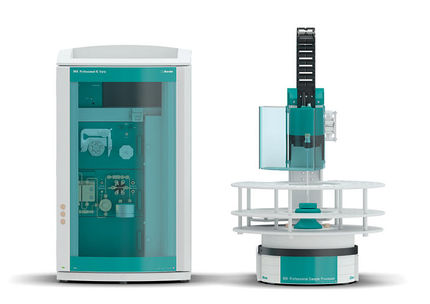To use all functions of this page, please activate cookies in your browser.
my.chemeurope.com
With an accout for my.chemeurope.com you can always see everything at a glance – and you can configure your own website and individual newsletter.
- My watch list
- My saved searches
- My saved topics
- My newsletter
Fusel alcoholFusel alcohols, also sometimes called fusel oils, or potato oil in Europe, are higher order (more than two carbons) alcohols formed by fermentation and present in cider, mead, beer, wine, and spirits to varying degrees. The term fusel is German for “bad liquor.” Product highlightComposition and tasteThe compounds involved are chiefly:
Excessive concentrations of these fractions may cause off flavours, sometimes described as "spicy," "hot," or "solvent-like." Some beverages, such as whiskey, Siwucha and traditional ales and ciders, are expected to have relatively high concentrations of fusel alcohols as part of the flavour profile. In other beverages, such as vodka and lagers, the presence of fusel alcohols is considered a fault. Very high concentrations — usually caused by incompetent distillation — can cause acute illness, including headaches, nausea, vomiting, clinical depression, or coma. Such a liquor may be referred to as rotgut. Formation and removalFusel alcohols are formed when fermentation occurs:
During distillation, fusel alcohols are concentrated in the "tails" at the end of the distillation run. They have an oily consistency, which is noticeable to the distiller, hence the other name fusel oil. If desired, these heavier alcohols can be almost completely separated in a reflux still. Freeze distillation, on the other hand, does not remove fusel alcohols. |
| This article is licensed under the GNU Free Documentation License. It uses material from the Wikipedia article "Fusel_alcohol". A list of authors is available in Wikipedia. |







